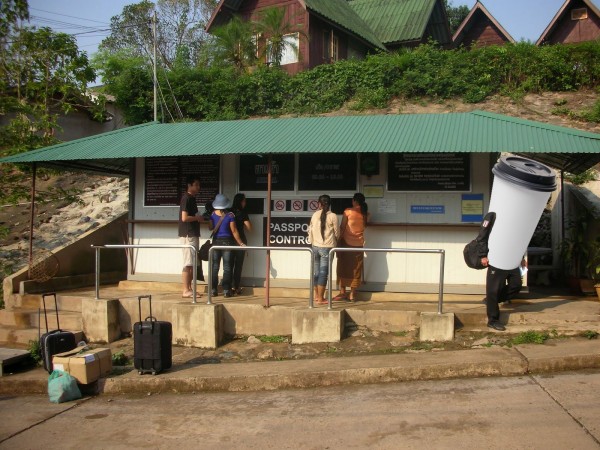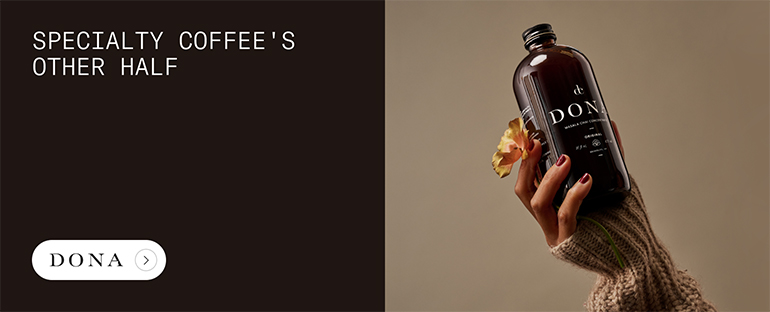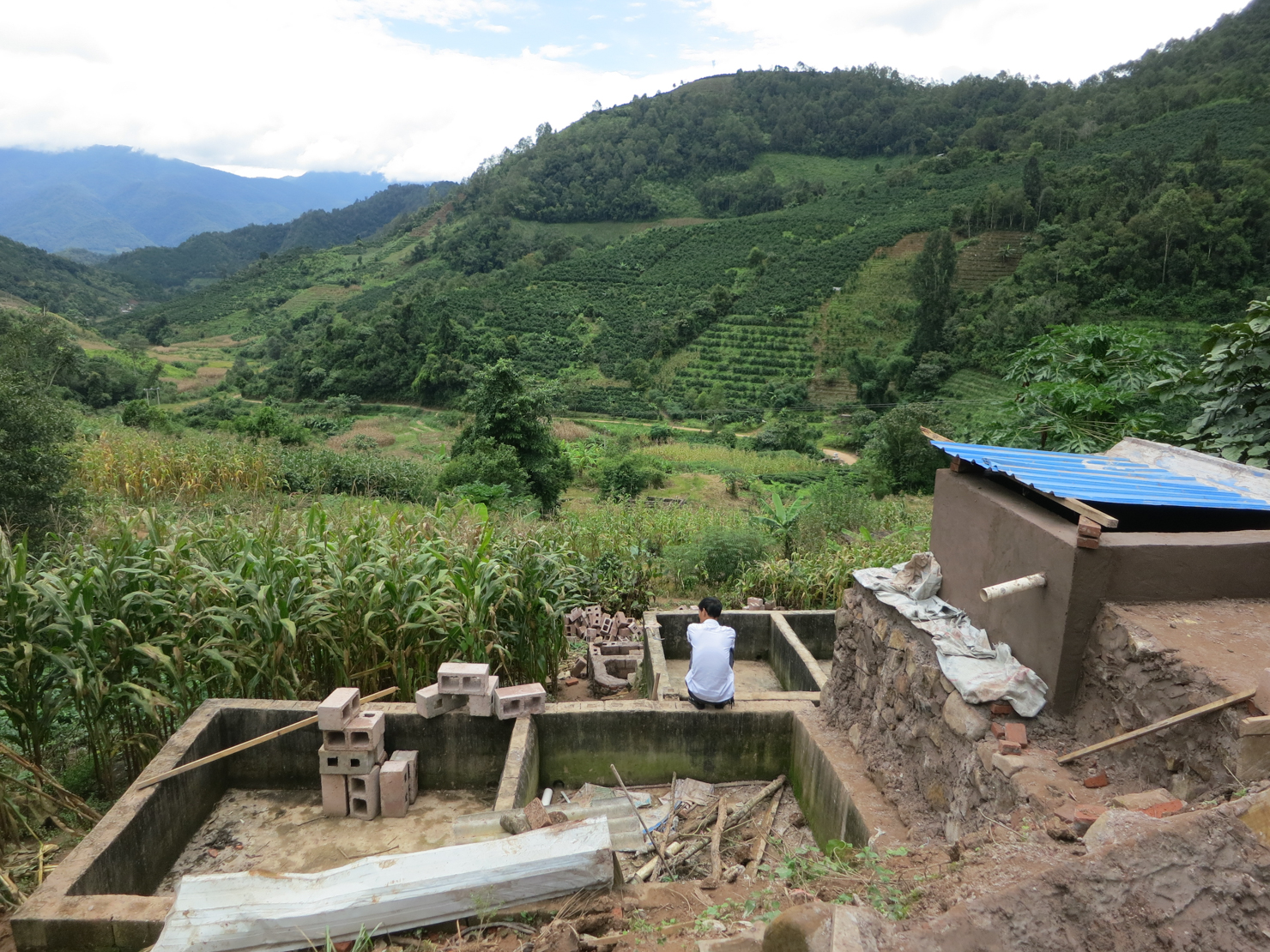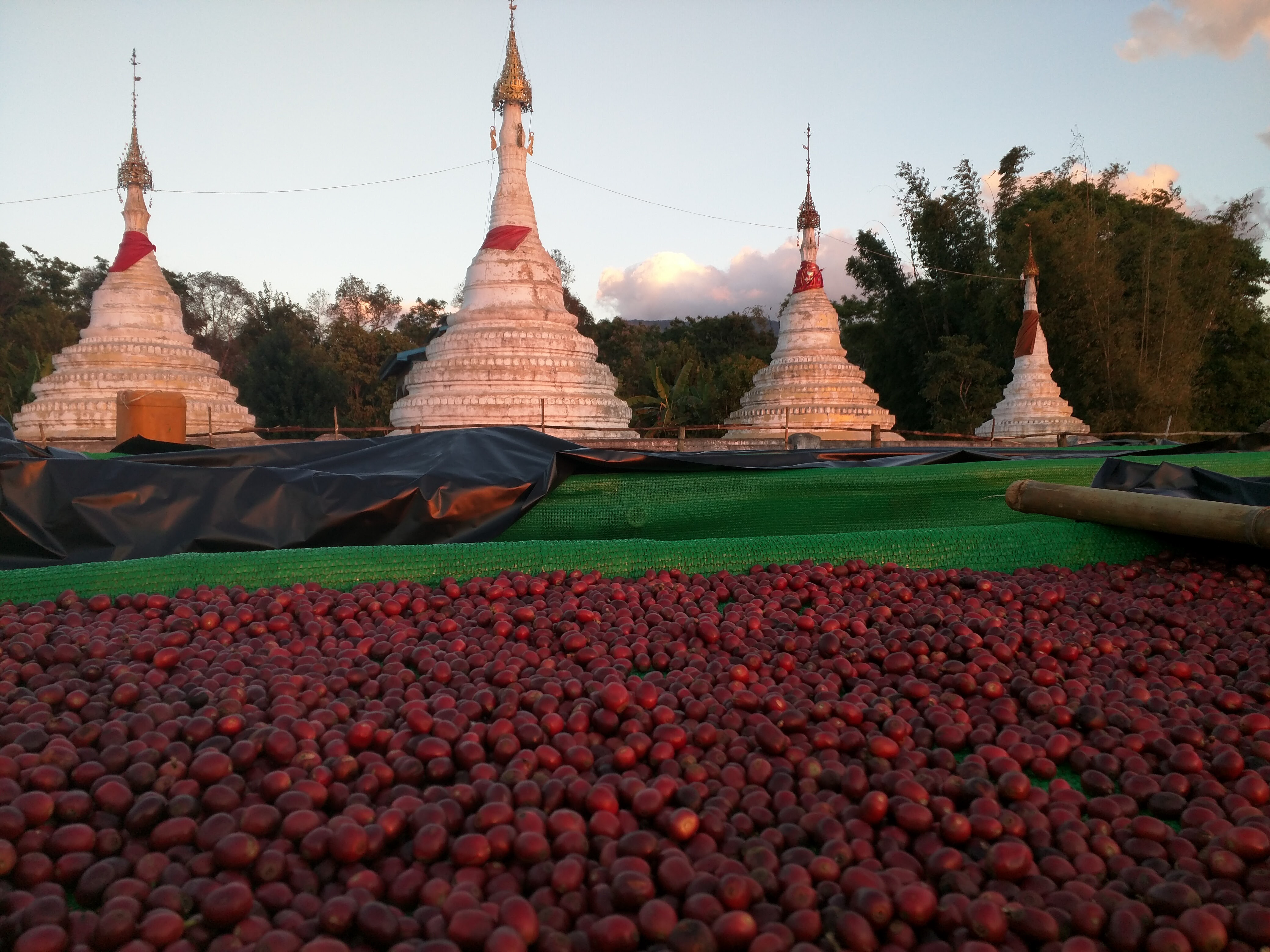A tale of two stories from Time.com…
First up, a fascinating piece on coffee cultivation in Laos. French colonialists were pushed out of coffee growing regions in Laos during World War 2, and land wars in the decades after littered coffee plantations with unexploded bombs and craters. Now, Laotian farmers are working harder than ever to get quality coffee growing again. Spend a minute or two with this Time Magazine feature on the state of coffee growing in the Bolaven Plateau:
“A lot of farmers don’t necessarily have the best practices,” says Hyman, the market consultant. “Their crops might not be spaced properly. They don’t trim the crop properly. This has huge effects in terms of productivity.” In his report for the World Bank, he suggests that for the Bolaven Plateau to realize its full potential, further technical assistance from the public and private sector needs to be extended to small holders. Fourth-generation coffee farmer Khampay Keobounkuan agrees: “I want my son to keep up the farm, but I want him to improve it.”
Not bad, right? I bet you hadn’t thought about coffee cultivation and unexploded armaments in Laos today. And yet, haunting this feature on the left-hand sidebar…
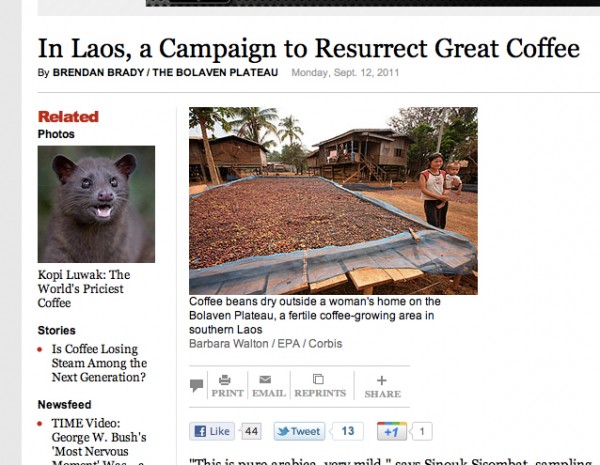
Check out that big stupid link to a Kopi Luwak photo feature. We’ve fought long and hard against the popularity of the force-fed cat poop coffee, but it seems as though the mainstream media keeps churning out this same awful story. For anyone reading this that doesn’t already know: Kopi Luwak sucks. It doesn’t taste good, it’s a horrific process and it’s definitely not worth your time or money.
Sprudge.com would like to invite our readers to join the recently created Facebook group “No To Kopi Luwak Coffee”. We wholeheartedly agree with their mission statement:
“Send a message to the coffee industry that Kopi Luwak coffee is unacceptable, tastes bad, does not serve the coffee farmer’s interest.”
Now if only we could get that message across to TIME…











